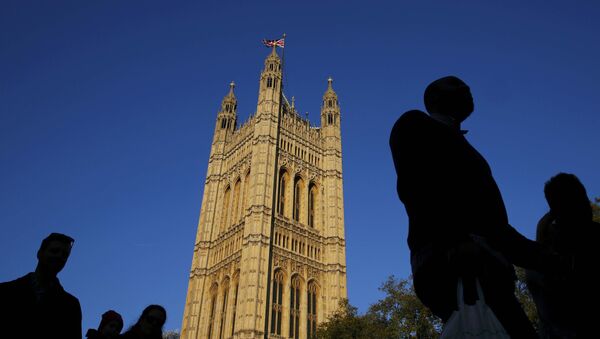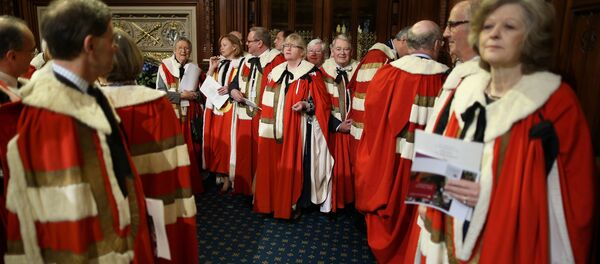Chancellor George Osborne unveiled the increase in defense spending, saying that he wanted the UK to do its bit in the international fight against terrorism.
Spending Review on Wed will deliver economic and national security. We will increase spending on counter terrorism by 30pc #SR15
— George Osborne (@George_Osborne) November 22, 2015
"We are going to step up the aircraft carrier punch of the United Kingdom. We are going to make sure that when these aircraft carriers are available they are going to have planes that can fly from them in force," he told the BBC.
"By 2023, we will be able to have 24 of these jets, some of the most powerful in the world, the F-35, on the decks of these carriers."
'Deepest Cuts in History'
However, critics were quick to jump on Osborne's pledge to dedicate more money to defense, with Wednesday's release of the chancellor's Autumn Statement and spending review expected to contain US$30 billion (£20bn) worth of budget cuts as part of the Conservatives' pledge to run a budget surplus by 2020.
Govt will invest over £15bn over next 5 years fighting terror threat at home and abroad #SR15
— George Osborne (@George_Osborne) November 22, 2015
Opponents say that the budget cuts will be too harsh and will plunge many of Britain's poorest people into poverty.
Osborne has pledged not to slash health funding, but will maintain the UK's commitment to spend two percent of GDP on defense, with many criticizing the government for wanting to pursue overseas interventions rather than address domestic welfare.
Cuts to tax credits will hit working families hard. Oppose them here → https://t.co/cBI5JmvvMF #stopthetaxcreditcut pic.twitter.com/dJ1f7LH9r8
— The Labour Party (@UKLabour) November 21, 2015
The government recently suffered a humiliating defeat in the House of Lords, after Peers blocked the chancellor's proposed cuts to tax credit benefits over concerns they would negatively impact on Britain's poorest.
The highly influential think tank, the Institute for Fiscal Studies (IFS), said that if the chancellor's proposed cuts go ahead, then they would be the deepest the UK has ever seen.
"The make-up of the state will be extremely different by 2020 from what it was in 2010," IFS director Paul Johnson told the Telegraph. "It will be much more focused on health and pensions and much less focused on things like provision of local services, police, further education, and other things like that.
"If you put these cuts on top of what we saw in the last Parliament, there really isn't anything to compare. We have never had anything like it. The size of the state overall will be roughly where it was at the end of the 1990s, which was a historic low for the post-War period."
Concerns Over Anti-Terror Plan Amid Police Cuts
In 2 months: now anti-austerity party, for public ownership of rail, Govt defeat on #taxcredits, no Saudi prison bid pic.twitter.com/FOZduKv6im
— Jeremy Corbyn MP (@jeremycorbyn) November 23, 2015
While Osborne has said that the government will increase anti-terror spending, there are concerns that the Conservatives' widespread budget cuts will inhibit law enforcement agencies, after the chancellor refused to rule out bringing in spending cuts to the police force.
"Every public service has to make sure it is spending money well," he said.
Labour Shadow Chancellor John McDonnell was quick to criticize Osborne's comments, saying that cutting back on police spending would put Britons at risk, particularly given the recent Paris terror attacks:
"If [George Osborne] cuts the police service in the way he's planned, that undermines our security."
"I am saying to him directly, end the cuts to policing because all the police chiefs are saying you are putting our communities at risk. I will support him if he says, straightforwardly, policing cuts will not take place," he added.



